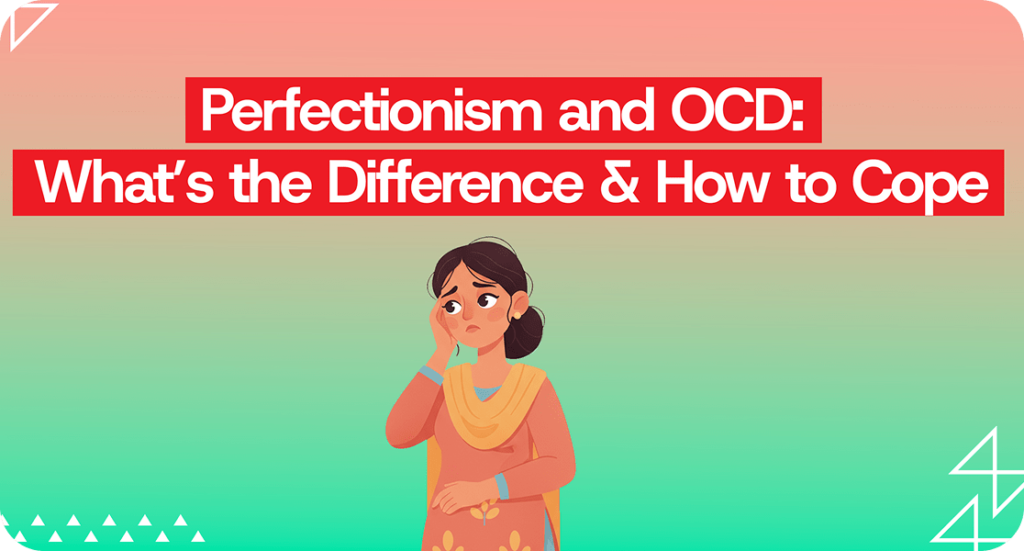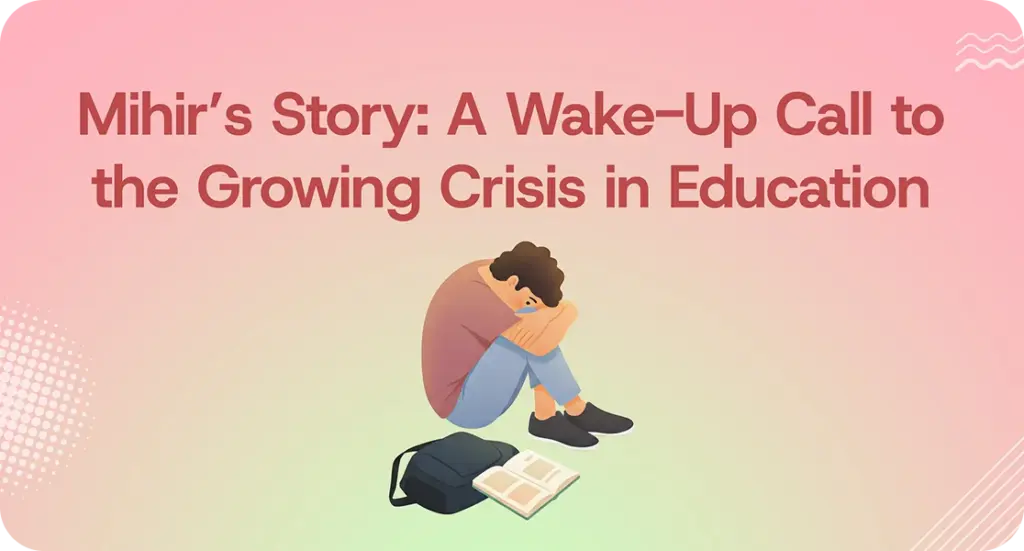
When your partner prioritizes work over your relationship, it can lead to feelings of neglect and strain. Finding a balance between work and personal life is crucial.
Let’s consider an Example: Meet Sarah and Alex, a couple in their late 20s. Alex is a high-achieving marketing executive who consistently works long hours, often sacrificing quality time with Sarah.Need to Talk to Someone?
Signs of Prioritizing Work
- Constant work emails: Alex checks work emails during dinner dates, family gatherings, and even during intimate moments.
- Long work hours: Alex often works 12-hour days, leaving Sarah alone in the evenings.
- Canceled plans: Alex frequently cancels plans with Sarah to meet deadlines or attend work events.
- Lack of emotional availability: When Sarah tries to talk about her feelings or concerns, Alex becomes distracted or dismissive.
Effects on the Relationship
- Feeling neglected: Sarah feels like she’s not a priority in Alex’s life.
- Emotional distance: The couple’s conversations become superficial, and they grow apart.
- Resentment: Sarah starts to resent Alex’s workaholic tendencies.
Potential Consequences
-
- Relationship strain: If Alex doesn’t make changes, the relationship may suffer long-term damage.
- Communication breakdown: The couple’s communication may become increasingly strained.
-
Dealing with a partner who prioritizes work over the relationship can be challenging and emotionally draining.
Here are some steps to help you navigate this situation:
- Communicate Your Feelings: Share your feelings and concerns with your partner. Be specific about how their prioritization of work is affecting you and the relationship.
- Understand Their Perspective: Try to understand your partner’s perspective and the reasons behind their prioritization of work. Are they under pressure to meet deadlines or facing financial stress?
- Set Boundaries: Establish clear boundaries and expectations for your partner’s work-life balance. Discuss specific times for work and personal life.
- Schedule Quality Time: Plan regular quality time together, doing activities you both enjoy. This can help your partner reconnect with you and the relationship.
- Reevaluate Priorities: Encourage your partner to reevaluate their priorities. Ask them to consider the long-term impact of their work-centric lifestyle on the relationship.
- Seek Support: Consider seeking support from a couples therapist or counselor. They can help you both communicate more effectively and work through underlying issues. Oppam is always with you and Oppam will be an excellent mental health companion.
- Foster a Healthy Work-Life Balance: Work together to establish a healthy work-life balance. Encourage your partner to take breaks, practice self-care, and prioritise personal time.
How to deal with a workaholic partner
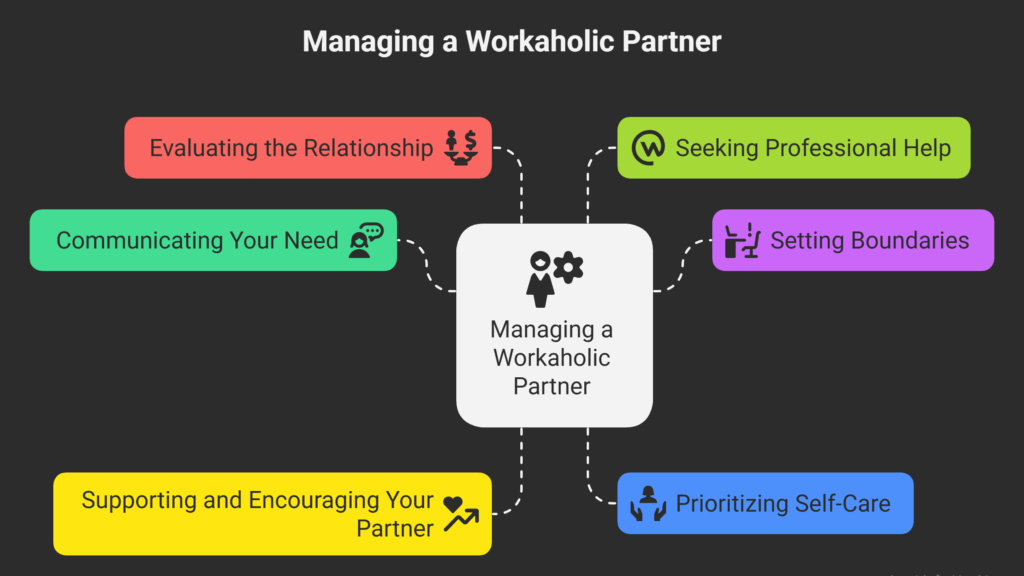
When your partner is a workaholic, it can be challenging to spend quality time together. This behavior might not be intentional, but rather a deeply ingrained habit.
Challenges and Opportunities
- Understanding their habits: Recognizing that their workaholism might be a habit.
- Communication is key: Openly discussing feelings and needs.
- Setting boundaries: Establishing clear expectations for quality time.
Strategies for Success
- Clear communication: Expressing needs and feelings.
- Mutual understanding: Working together to find a balance.
- Boundary setting: Establishing priorities and expectations.
1.Communicating Your Need
Expressing your feelings, concerns, and needs to your partner is crucial. Share your worries about their work habits and how they impact your relationship.
Key Points to Discuss
- Impact on the relationship: How their work habits affect your bond.
- Your needs and expectations: What you desire from the relationship and your partner.
- Concerns and feelings: Openly sharing your emotions and concerns.
Benefits of Open Communication
- Better understanding: Your partner gains insight into your needs.
- Stronger connection: Communication fosters a deeper connection.
- Finding solutions: Together, you can find ways to balance work and relationship.
2. Setting Boundaries
Establishing boundaries is essential in a relationship. It helps partners understand each other’s needs, desires, and concerns, promoting a healthy and sustainable dynamic.
Importance of Boundaries
- Quality time: Prioritizing time together, free from work-related distractions.
- Work-free zones: Designating areas or times as work-free to foster relaxation and connection.
- Reducing stress: Creating space to enjoy each other’s company without work-related pressure.
Benefits of Setting Boundaries
- Improved communication: Clearly defining needs and expectations.
- Increased intimacy: Focusing on each other, rather than work.
- Healthier relationship: Establishing a balance between work and personal life.
3.Supporting and Encouraging Your Partner
Benefits of Support
- Reduced stress: Feeling supported can alleviate work-related pressure.
- Increased focus: With emotional support, your partner can focus more on the relationship.
- Stronger bond: Showing understanding and empathy strengthens your connection.
Ways to Show Support
- Active listening: Hear your partner out and show you care.
- Emotional support: Be a source of comfort and encouragement.
- Practical help: Offer assistance when possible to reduce workload.
4.Prioritizing Self-Care
Taking time for yourself is essential in a relationship. By focusing on your own well-being, you can better navigate challenges and maintain a healthy dynamic.
Benefits of Self-Care
- Improved emotional resilience: You’re better equipped to handle relationship stress.
- Increased self-awareness: Understanding your own needs and desires.
- Healthier relationship: A balanced you contributes to a balanced partnership.
5.Evaluating the Relationship
6. Seeking professional help
Benefits of Professional Help:
- Improved Communication: A therapist can help you and your partner communicate more effectively.
- Conflict Resolution: Professional help can aid in resolving conflicts and finding solutions. consider therapy for couples struggling with work-life balance, and also online counselling for relationship neglect.
- Relationship Strengthening: Therapy can help you both understand each other’s needs and priorities. rebalance your relationship with Oppam.
Feeling Overwhelmed?
Oppam Therapist Wherever You Are
Types of Professional Help:
- Couples Therapy: Addresses issues like work-life balance, communication, and conflict resolution. Book an Oppam therapist for relationship support.
- Online Counseling: Convenient and accessible, online counseling can help with relationship neglect and other issues. Rebalance your relationship with Oppam.
- Relationship Coaching: Helps couples rebalance their relationship and prioritize quality time together.
Signs that your partner is too focused on work
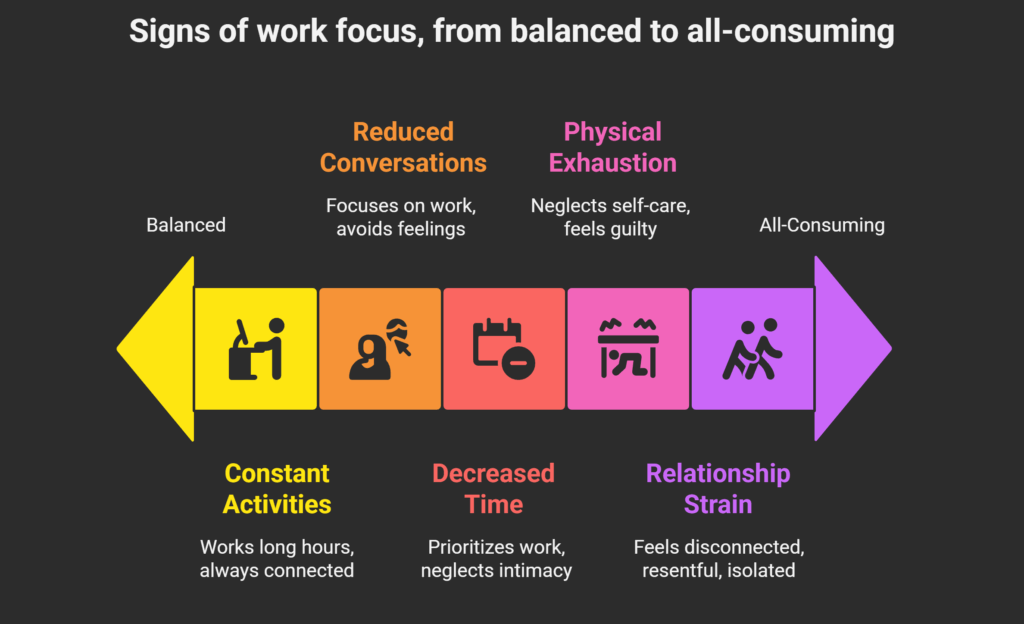
Here are some detailed points on signs your partner might be too focused on work:
Behavioral Signs
- Constant work-related activities: Working long hours, checking emails/messages during personal time.
- Neglecting relationship responsibilities: Ignoring household chores, canceling plans.
- Lack of emotional availability: Distant, preoccupied, or dismissive.
Communication Signs
- Reduced meaningful conversations: Focusing solely on work-related topics.
- Dismissing emotional needs: Minimising or ignoring the partner’s feelings.
- Lack of active listening: Not fully engaging in conversations.
Relationship Signs
- Decreased quality time: Spending less time together, prioritizing work.
- Loss of intimacy: Neglecting physical or emotional intimacy.
- Increased stress and tension: Work-related stress affects relationship dynamics.
Personal Signs
- Physical and mental exhaustion: Neglecting self-care, appearing drained.
- Changes in priorities: Prioritizing work over relationships, hobbies, or personal interests.
- Feelings of guilt or anxiety: Feeling anxious about work, neglecting a relationship.
Consequences
- Relationship strain: Feeling disconnected, resentful.
- Emotional distance: Growing apart, feeling isolated.
- Potential long-term effects: Impacting relationship satisfaction, overall well-being.
Emotional neglect because of work stress
Signs of Emotional Neglect
Feeling ignored or dismissed by your partner can be a sign of emotional neglect. Emotional support is crucial in a relationship, and its absence can lead to feelings of isolation and pain.
Key Signs
- Feeling unheard: Your partner doesn’t listen to you or respond to your needs.
- Lack of emotional support: Your partner doesn’t provide comfort or support when needed.
- Prioritizing work over relationship: Work takes precedence over relationship needs, leading to feelings of neglect.
Effects of Emotional Neglect
- Emotional pain: Feeling ignored or dismissed can cause significant emotional distress.
- Strained relationship: Emotional neglect can lead to feelings of resentment and frustration.
- Loss of trust: Repeated neglect can erode trust and intimacy in the relationship
Addressing Emotional Neglect
- Communicate needs: Express your emotional needs to your partner.
- Seek support: Consider couples therapy or counselling to address emotional neglect.
- Rebalance priorities: Work together to find a healthy balance between work and relationship needs.
1. Effects on Relationships
Emotional neglect can significantly impact relationships, leading to feelings of isolation and disconnection. When one partner prioritizes work or other things over the relationship, emotional intimacy suffers.
1. Consequences
- Emotional distance: Partners may feel disconnected and isolated.
- Resentment: Unmet emotional needs can lead to feelings of resentment and frustration.
- Communication breakdown: Emotional neglect can cause communication to become strained, nervous, or exhausted.
2. Signs of Strained Communication
- Avoidance: Partners may avoid discussing important issues.
- Defensiveness: Communication becomes guarded or defensive.
- Emotional exhaustion: Conversations feel draining or unfulfilling.
3.Addressing the Issues
- Open communication: Express your emotional needs and concerns.
- Rebuilding intimacy: Make time for emotional connection and intimacy.
- Seeking support: Consider couples therapy or counselling to address underlying issues.
2. Addressing Emotional Neglect
Open communication, boundary setting, and quality time can help address emotional neglect in relationships.
1.Key Strategies
- Open conversation: Discuss your feelings and needs with your partner.
- Boundary setting: Establish clear boundaries to understand each other’s comfort levels.
- Quality time: Prioritize spending quality time together, scheduling it if necessary.
2.Benefits
- Improved understanding: Your partner gains insight into your emotional needs.
- Increased intimacy: Quality time fosters emotional connection and intimacy.
- Healthier relationship: Addressing emotional neglect strengthens the relationship.
3.Making It Work
- Schedule quality time: Make time for each other, despite busy schedules.
- Be present: Focus on the moment, putting away distractions.
- Show appreciation: Express gratitude and appreciation for each other.
3.Prevention Strategies
Prioritizing relationship needs, understanding each other’s desires, and managing stress can help prevent emotional neglect.
1. Key Strategies
- Prioritize relationship needs: Make time for each other and discuss goals.
- Understand each other’s desires: Communicate openly about needs and wants.
- Manage stress: Find healthy ways to cope with stress, such as exercise or meditation.
2.Benefits
- Improved communication: Regular discussions foster understanding and empathy.
- Increased intimacy: Quality time and appreciation strengthen emotional bonds.
- Healthier relationship: Effective stress management reduces conflict.
4. Additional Tips
Emotional support is vital in a relationship, providing a sense of security and comfort. When one partner is struggling, emotional support from the other can be a powerful bonding experience.
1.Benefits of Emotional Support
- Increased emotional intimacy: Feeling supported and understood deepens emotional connection.
- Stronger relationship bond: Emotional support fosters trust, loyalty, and commitment.
- Mutual understanding: Partners feel heard, validated, and understood.
2.Why Emotional Support Matters
- Emotional validation: Feeling supported and understood validates one’s emotions.
- Stress reduction: Emotional support can help alleviate stress and anxiety.
- Relationship satisfaction: Emotional support is linked to higher relationship satisfaction.
By providing emotional support, partners can build a stronger, more resilient relationship.
5.Importance of Emotional Support
- Show appreciation: Express gratitude and acknowledge each other’s efforts.
- Seek professional help: Consider therapy or counseling if needed.
- Rebalance priorities: Make adjustments to prioritize the relationship.
1.Online Resources
- Online counselling: For relationship neglect or work-life balance issues. Consider therapy for couples struggling with work-life balance, and also online counselling for relationship neglect.
- Therapy for couples: To address specific challenges and strengthen the relationship. Consider Oppam therapy for relationship work-life balance. Rebalance your relationship with Oppam.
Balancing love and career in a relationship
Here are some detailed points about balancing love and career in a relationship:
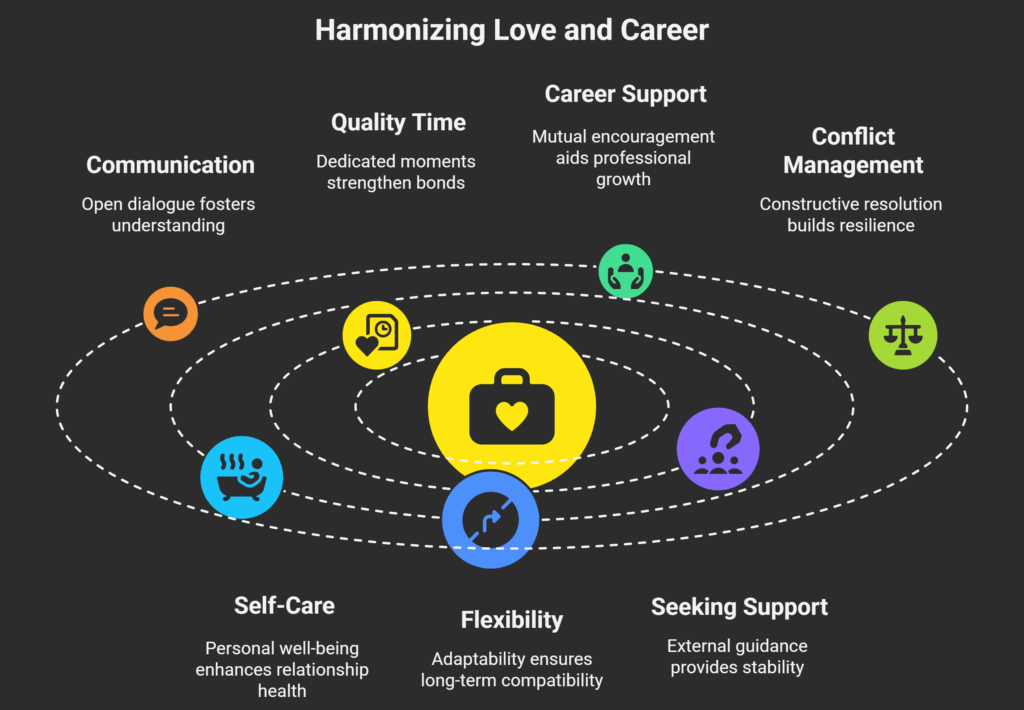
Communication is Key
- Discuss goals and priorities: Talk about your career aspirations and relationship goals.
- Share schedules: Coordinate your work and personal schedules to ensure quality time together.
- Express needs and feelings: Communicate your emotional needs and feelings to your partner.
Prioritizing Quality Time
- Schedule quality time: Make time for regular date nights or activities.
- Be present: Focus on the moment and engage with your partner.
- Show appreciation: Express gratitude and appreciation for each other.
Supporting Each Other's Careers
- Understand career demands: Be aware of your partner’s work schedule and demands.
- Offer emotional support: Provide encouragement and support during challenging times.
- Celebrate successes: Acknowledge and celebrate each other’s achievements.
Managing Conflict
- Address conflicts: Discuss and resolve conflicts constructively.
- Find compromises: Look for solutions that balance both partners’ needs.
- Maintain intimacy: Prioritize emotional and physical intimacy.
Self-Care and Independence
- Maintain individuality: Pursue your interests and hobbies.
- Prioritize self-care: Take care of your physical and emotional well-being.
- Respect boundaries: Respect each other’s need for alone time or space.
Flexibility and Adaptability
- Be flexible: Adjust to changing circumstances and priorities.
- Adapt to new situations: Be open to new experiences and challenges.
- Re-evaluate priorities: Regularly assess and adjust your priorities.
Seeking Support
- Couples therapy: Consider seeking professional help to navigate challenges.Rebalance your relationship with Oppam. Book an Oppam therapist for relationship support.
- Support networks: Build a network of friends, family, or support groups.
- Online resources: Utilize online resources and advice for relationship guidance. Consider online counselling for relationship neglect, and also therapy for couples struggling with work-life balance.
How to reconnect with a busy partner
Communication Strategies
- Honest Conversations: Have open and honest discussions about your feelings, needs, and schedules. Share your daily experiences, and ask your partner about theirs.
- Active Listening: When communicating, actively listen to your partner, and show interest in their thoughts and feelings.
- Ask Open-Ended Questions: Encourage meaningful conversations by asking questions that can’t be answered with a simple “yes” or “no.”
Quality Time
- Schedule Quality Time: Plan regular date nights or activities that you both enjoy, such as watching a movie, going shopping, or taking long walks.
- Be Present: When spending time together, put away distractions like phones and focus on the moment.
- Mix and Match Time Together: Spend time as a couple with family and friends, but also prioritize alone time.
Rekindling Intimacy
- Date Nights: Plan regular date nights to reawaken emotions and strengthen your bond.
- Show Appreciation: Express gratitude and appreciation for each other, and celebrate your partner’s achievements.
Emotional Connection
- Show Empathy and Understanding: Be supportive and understanding of each other’s busy schedules and stress.
- Validate Each Other’s Feelings: Acknowledge and validate each other’s emotions, even if you don’t agree on everything.
- Foster a Sense of Gratitude: Regularly express gratitude for your relationship and your partner.
Additional Tips
- Respect Boundaries: Recognize and respect each other’s personal boundaries and need for alone time.
- Seek Professional Help: Consider couples therapy or counselling to work through challenges and strengthen your relationship.consider therapy for relationship work life balance.
Rebalance your relationship with Oppam.
Navigating career and relationship priorities
Communicate with Your Partner
- Discuss priorities: Share your career goals and relationship priorities with your partner.
- Listen to their needs: Understand your partner’s needs, expectations, and priorities.
- Set mutual goals: Establish common goals that balance career and relationship priorities.
Set Boundaries
- Establish work-life balance: Set clear boundaries between work and personal life.
- Designate quality time: Schedule quality time with your partner, free from work-related activities.
- Learn to say no: Be mindful of your workload and avoid taking on excessive responsibilities that may impact your relationship.
Support Each Other's Goals
- Be each other’s biggest cheerleader: Support and encourage each other’s career and personal goals.
- Offer help when needed: Assist each other with work-related tasks or personal responsibilities when possible.
- Celebrate milestones: Acknowledge and celebrate each other’s achievements and milestones.
Make Time for Each Other
- Schedule regular date nights: Plan regular date nights or activities that bring you joy and closeness.. Take breaks together: Use vacation days or weekends to relax and recharge together.
- Show appreciation: Express gratitude and appreciation for each other, both in person and through small gestures.
Be Flexible and Adaptable
- Be open to change: Be willing to adjust your priorities and plans as circumstances change.
- Find creative solutions: Explore innovative ways to balance career and relationship priorities.
- Prioritize quality over quantity: Focus on the quality of time spent together rather than the quantity.
Seek Support When Needed
- Couples therapy: Consider seeking the help of a Oppam couples therapist to navigate challenges.
- Support groups: Join support groups or online communities to connect with others facing similar challenges.
- Mentorship: Seek guidance from mentors or coaches who can offer valuable insights and advice.
Remember, balancing career and relationship priorities requires ongoing communication, flexibility, and support. By working together and prioritizing your relationship, you can navigate challenges and build a stronger, more resilient partnership.
Feeling Stuck? If your partner is prioritizing work over your relationship, causing you stress and anxiety, don’t worry. Help is available.
